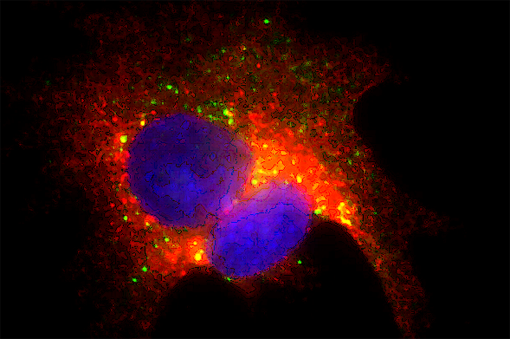
N-glycans attached to the envelope proteins of hepatitis B virus (HBV) are critical in different steps of the viral life cycle. Inhibition of the host enzymes alpha-glucosidases, involved in the endoplasmic reticulum (ER)- associated processing of the N-linked glycans, results in misfolding of the HBV envelope proteins, prevention of HBV secretion and accumulation of viral DNA within infected cells.
Using N-butyl-deoxynojirimycin (NB-DNJ), a competitive inhibitor of the ER alpha-glucosidases, we have recently addressed the impact of this inhibition on both assembly and infectivity of the virions released from infected hepatoma cells. Southern and Western blotting analysis of HBV secreted from drug-treated cells showed that the envelope glycoprotein composition was severely altered, resulting in a significant reduction of HBV infectivity (80% compared to controls).
This work shows for the first time that an active alpha-glucosidase activity of the host cell is crucial for the production of infectious HBV.
"Treatment of hepatitis B virus-infected cells with alpha-glucosidase inhibitors results in production of virions with altered molecular composition and infectivity.",
Antiviral Res., 76 (1), 30-37 (2007)
Lazar C, Durantel D, Macovei A, Zitzmann N, Zoulim F, Dwek RA, Branza-Nichita N
"Iminosugars in combination with interferon and ribavirin permanently eradicate noncytopathic bovine viral diarrhea virus from persistently infected cells",
Antimicrobial Agents& Chemotherapy., 52, 1820-1828 (2008)
Woodhouse SD, Smith C, Michelet M, Brânz.-Nichita N, Hussey M, Dweek RA, Zitzmann N